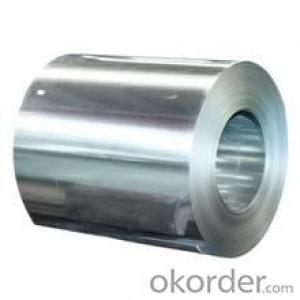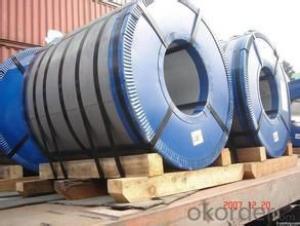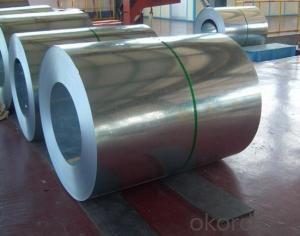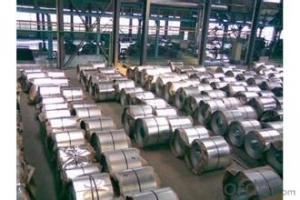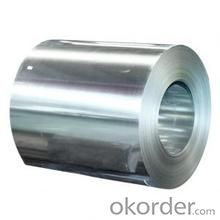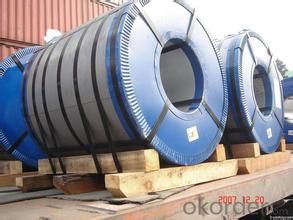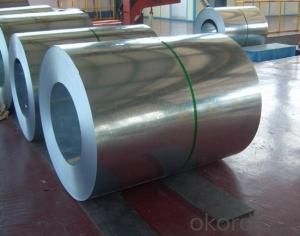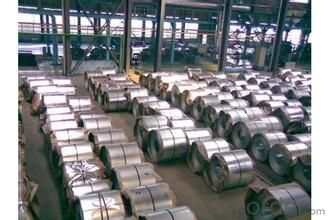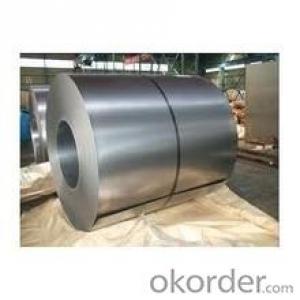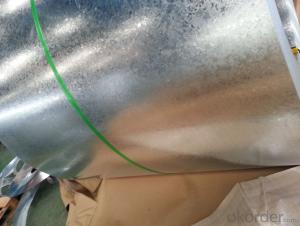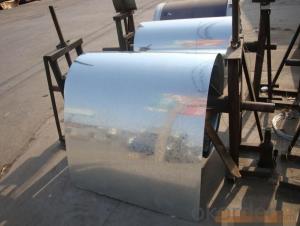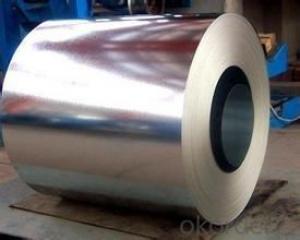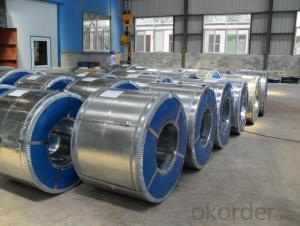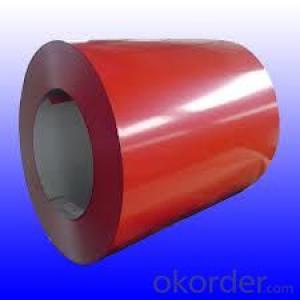HOT-DIP GALVANIZED/ ALUZINC STEEL in China
- Loading Port:
- Tianjin
- Payment Terms:
- TT OR LC
- Min Order Qty:
- 50 m.t.
- Supply Capability:
- 5000000 m.t./month
OKorder Service Pledge
OKorder Financial Service
You Might Also Like
Product Description:
THICKNESS:0.18mm-1.5mm
WIDTH:900mm-1250mm
COATING MASS:AZ30-AZ150
SPANGLE:Minimized Spangle,Zero Spangle
SURFACE TREATMENT:N0on or Chromated,Non or Oiled,Non or Anti Finger Print
COIL INNER DIAMETER:508mm/610mm
COIL WEIGHT:3mt-7m
Hot-dip galvanized steel coils are available with a pure zinc coating through the hot-dip galvanizing process. It offers the economy, strength and formability of steel combined with the corrosion resistance of zinc. The hot-dip process is the process by which steel gets coated in layers of zinc to protect against rust. It is especially useful for countless outdoor and industrial applications.
We can ensure that stable quality standards are maintained, strictly meeting both market requirements and customers’ expectations. Our products enjoy an excellent reputation and have been exported to Europe, South-America, the Middle-East, Southeast-Asia, Africa and Russia etc.. We sincerely hope to establish good and long-term business relationship with your esteemed company.
- Q: What are the common applications of cold-rolled steel coils?
- Cold-rolled steel coils have a wide range of common applications in various industries due to their exceptional qualities. One of the most common applications is in the automotive industry, where cold-rolled steel coils are used to manufacture car parts such as body panels, chassis components, and structural reinforcements. The high strength and excellent formability of cold-rolled steel make it ideal for these applications. Another common application is in the construction industry, where cold-rolled steel coils are used to fabricate structural elements for buildings and infrastructure. Cold-rolled steel is often used to make beams, columns, and other load-bearing components due to its superior strength and durability. Cold-rolled steel coils are also widely used in the manufacturing of appliances and consumer goods. They are commonly used to create the outer shells of refrigerators, washing machines, and ovens. The smooth and consistent surface finish of cold-rolled steel makes it perfect for these applications, as it provides an aesthetically pleasing appearance. Additionally, cold-rolled steel coils find applications in the electrical industry. They are used to produce electrical enclosures, transformers, and various other components due to their excellent electrical conductivity and magnetic properties. Overall, the common applications of cold-rolled steel coils span multiple industries, including automotive, construction, appliances, and electrical. The versatility, strength, formability, and aesthetic appeal of cold-rolled steel make it a preferred choice for many manufacturers in various sectors.
- Q: why does steel have a density range when other metals do not?
- Steel is not a pure element it is an alloy. Steel is primarily iron but it has many elements blended in that change it's density including carbon,silicon, nickel, chrome, etc. Aluminum and copper , magnesium and so forth can be the pure element or they can be alloys too. If they are alloys, then their densities vary also
- Q: What are the common coil surface treatments?
- Some common coil surface treatments include galvanizing, painting, and powder coating. These treatments help protect the coil from corrosion, improve its appearance, and increase its durability.
- Q: What are the different methods of corrosion protection for steel coils?
- Steel coils can be protected from corrosion using several different methods, each with its own advantages and disadvantages. One commonly used method is to apply a protective coating to the steel coils. This can be done through various techniques like hot-dip galvanizing, electroplating, or painting. Coatings act as a barrier between the steel surface and the corrosive environment, preventing direct contact and reducing the risk of corrosion. Another option is the use of VCI materials, which release chemicals that inhibit corrosion when they come into contact with the steel surface. These materials can be applied as coatings, films, or papers, and are particularly useful for long-term storage or shipping of steel coils. Cathodic protection is a method that involves the use of sacrificial anodes or impressed currents. Sacrificial anodes, made of zinc or aluminum, are connected to the steel surface and corrode instead of the steel, sacrificing themselves to protect the coils. Impressed current systems use a direct electrical current to prevent corrosion on the steel surface. Proper wrapping and packaging can also provide corrosion protection for steel coils. This includes using moisture barrier films, desiccants, or absorbent materials to reduce moisture content. Adequate ventilation and avoiding contact with other corrosive substances are also important. Controlling the environment in which the steel coils are stored or used is crucial for corrosion protection. This involves maintaining proper humidity levels, controlling temperature, and managing air quality. By minimizing exposure to corrosive elements like moisture, salts, or chemicals, the risk of corrosion can be significantly reduced. It's worth noting that the choice of corrosion protection method depends on factors such as the specific application, budget constraints, and desired lifespan of the steel coils. A combination of these methods may also be used to enhance corrosion protection.
- Q: My 8-year-old and 9-year-old boys have approached me with an interesting question. Does fire burn steel? One says yes, the other says no. Help me to settle yet another debate :)
- It can burn it... but not the sort of fire you would find at home... Ive actually done it before in a silversmithing class with a very hot blow torch. It takes a long time, the metal first goes pink, then glowing orange red... it stays that way for a while, and then 'cracks' kind of loudly and basically disintergrates very suddenly. A torch this hot has a very hard (noisy) flame which is very transparent. But you cant burn it in the fireplace.
- Q: How are steel coils used in the production of industrial valves?
- Steel coils are used in the production of industrial valves as they are typically cut and formed into various components, such as valve bodies and stems. The coils provide a strong and durable material for the valves, ensuring their reliability and longevity in industrial applications.
- Q: What are the different types of steel coil surface treatments for outdoor applications?
- There are several different types of steel coil surface treatments that are commonly used for outdoor applications. These treatments are applied to the steel to enhance its durability, corrosion resistance, and appearance. Some of the most commonly used surface treatments for outdoor applications include: 1. Galvanized: Galvanization is a process where a layer of zinc is applied to the steel surface. This treatment provides excellent corrosion resistance, making it ideal for outdoor applications. Galvanized steel coils have a shiny, silver appearance. 2. Galvalume: Galvalume is a combination of aluminum and zinc, which is applied to the steel surface. This treatment provides superior corrosion resistance compared to galvanized steel. Galvalume steel coils have a duller, matte finish. 3. Painted: Steel coils can be painted with a variety of coatings to enhance their appearance and protect against corrosion. The paint can be applied in a single or multiple layers, depending on the desired level of protection. Painted steel coils are available in a wide range of colors and finishes. 4. Powder Coated: Powder coating is a type of paint coating that is applied as a powder and then cured under heat. This treatment creates a durable and long-lasting finish. Powder coated steel coils are resistant to chipping, scratching, and fading, making them suitable for outdoor applications. 5. Organic Coated: Organic coatings, such as PVC or PVDF, are applied to steel coils to provide additional protection against corrosion and weathering. These coatings are typically used in architectural applications where aesthetics and durability are important. These different types of steel coil surface treatments offer various levels of protection and aesthetic options for outdoor applications. The choice of treatment depends on factors such as the intended use, environmental conditions, and desired appearance.
- Q: What is the shelf life of steel coils?
- The shelf life of steel coils can vary depending on various factors such as the type of steel, its specific application, and the storage conditions. Generally, steel coils have a long shelf life as they are highly durable and resistant to corrosion. When stored properly, such as in a dry and controlled environment, steel coils can last for many years without any significant degradation in quality. However, it is important to note that certain types of steel, such as galvanized steel, may have a shorter shelf life due to the potential for corrosion if the protective coating is compromised. Additionally, if steel coils are exposed to extreme weather conditions, high humidity, or chemicals, their shelf life may be reduced. To ensure the longevity of steel coils, it is recommended to store them in a covered area to protect them from moisture and direct sunlight. Proper stacking and handling techniques should also be followed to prevent any damage that could lead to premature deterioration. Ultimately, the shelf life of steel coils can vary, but with appropriate storage and handling, they can remain in good condition for an extended period, making them a reliable and long-lasting material for various applications.
- Q: Can steel coils be custom-made to specific requirements?
- Indeed, it is possible to manufacture steel coils according to specific requirements. Steel producers possess the necessary capabilities to manufacture steel coils with diverse dimensions, thicknesses, and specifications in order to meet the specific demands of their customers. These coils can be tailored in terms of width, length, weight, and even surface finish to accommodate specific applications and industries. Furthermore, customization options may include variations in steel grade, coating type, and mechanical properties to guarantee the desired performance and functionality. The capacity to customize steel coils to meet specific requirements enables their optimal utilization in a variety of sectors, including automotive, construction, appliances, and manufacturing, among others.
- Q: How are steel tape measures installed?
- Today, I met similar situations at work! Accidentally pull the head, and then automatically can not go back, after opening, winding, after installation, can not automatically withdraw! After a long time, we suddenly noticed that we neglected a small place!
Send your message to us
HOT-DIP GALVANIZED/ ALUZINC STEEL in China
- Loading Port:
- Tianjin
- Payment Terms:
- TT OR LC
- Min Order Qty:
- 50 m.t.
- Supply Capability:
- 5000000 m.t./month
OKorder Service Pledge
OKorder Financial Service
Similar products
Hot products
Hot Searches
Related keywords
